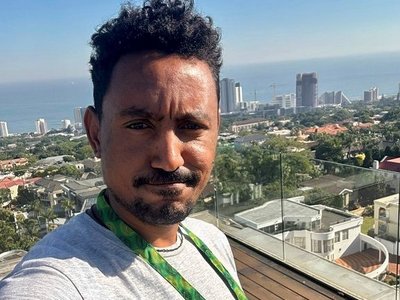

The research focused on the repeatability of triaxial testing, one of the most widely used laboratory test methods for characterizing the geotechnical properties of soils. Despite its prevalence, the test is subject to various sources of bias that affect its repeatability, and the reproducibility of parameters derived from the results, as observed from test replicates.
Through experimental analysis, Henok identified key factors contributing to deviations in test outcomes and quantified the extent of these deviations. The findings of the research serve as a valuable resource for both academic researchers and practicing geotechnical engineers, emphasizing the need for greater awareness and precision in conducting triaxial tests.
Henok Marie Shiferaw is currently pursuing a PhD at the University of Innsbruck, within the Institute of Infrastructure, Unit of Geotechnical Engineering. His doctoral work, funded by the APPEAR Programme, focuses on the mechanical behaviours of cemented clays, combining experimental investigations with machine learning-based modelling. Prior to his PhD studies, Henok served as a lecturer in the Department of Civil Engineering at the University of Gondar, Ethiopia.
